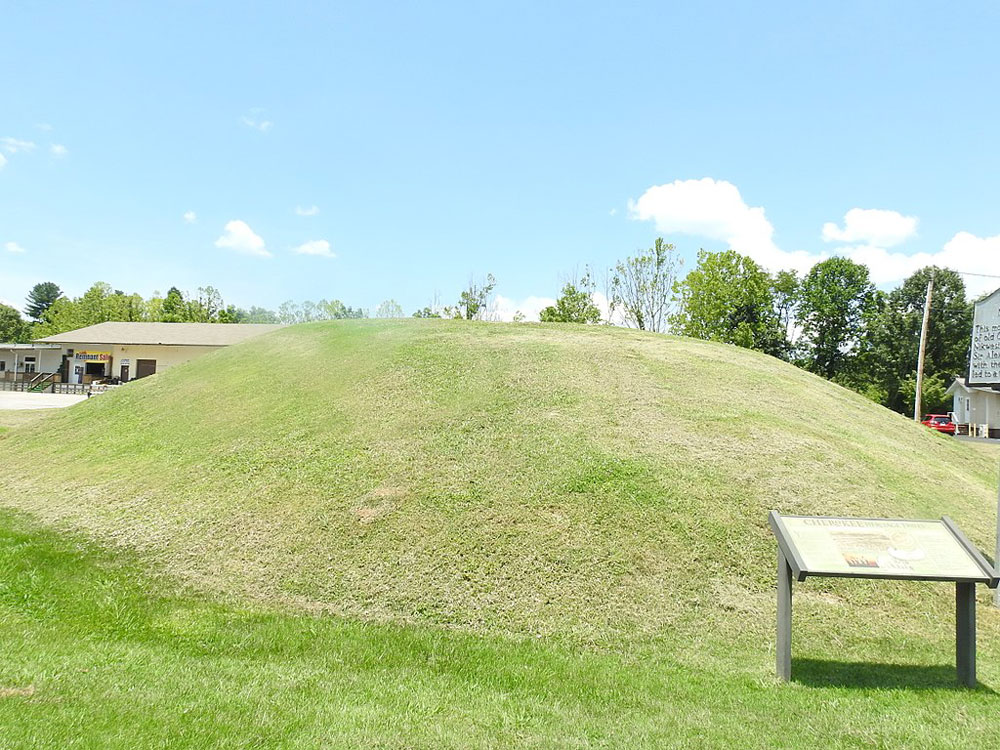
July 29, 2019; Sylva Herald
In May, the town board of Franklin, North Carolina, voted to transfer the property deed for Nikwasi Mound to the nonprofit Nikwasi Initiative. The deed transfer will ensure that the Eastern Band of Cherokee Indians (EBCI) and neighboring communities will have a say in the future of the mound, but the decision was not without controversy.
While some local residents opposed transferring the deed, the town board’s vote was unanimous, and now EBCI has committed $300,000 so the initiative can hire its first employee. Nikwasi Initiative’s broader plan will expand beyond the mound to highlight a Cherokee culture corridor along the Little Tennessee River to emphasize regional connections among preserved sites.
Nikwasi Mound, estimated to be about 1,000 years old, is the last remaining feature of a 100-acre Cherokee town. In 1946, residents of the county came together to save the mound from being leveled for commercial use by purchasing the deed for the surrounding town of Franklin.
Deed transfer opponents argued that the town of Franklin should maintain ownership. They suggested that the town could keep the deed while still supporting the Nikwasi Initiative and its endeavors, and they insist the town has been doing a fine job of maintaining the site.
A lawsuit, later withdrawn, was filed by five of the opponents.
Sign up for our free newsletters
Subscribe to NPQ's newsletters to have our top stories delivered directly to your inbox.
By signing up, you agree to our privacy policy and terms of use, and to receive messages from NPQ and our partners.
EBCI initially requested the deed in 2012 when the town sprayed herbicide on the mound, leaving the grass dead and brown. That request was denied.
Despite the controversy, the Nikwasi Initiative is looking toward the future and hopes to leave any hard feelings over the mound in the past. Plans for the mound include interpretive signage and possibly a museum nearby.
Juanita Wilson, an EBCI member who co-chairs Nikwasi Initiative, was one of the residents who voiced her opinion at the Franklin Town Hall before the vote. “We’re neighbors. We’re partners—people who all love this mound. I want to commend all of you for having that vision…we want to share it with you. We want to move forward with you into the future and we want to heal—we want to be one,” she shared at the meeting.
This clash over ownership and connection may sound familiar to nonprofits working with stakeholders who have competing claims to the work they are doing.
“I think there are these contentious questions of who owns the past and that ownership can become politicized. That’s happened at other mounds, not just Nikwasi,” Dr. Ben Steere, Assistant Professor of Anthropology at Western Carolina University, said. “It’s 2019 and I think what is most important now is that indigenous people have a say in their sacred sites.”—Julie Euber













